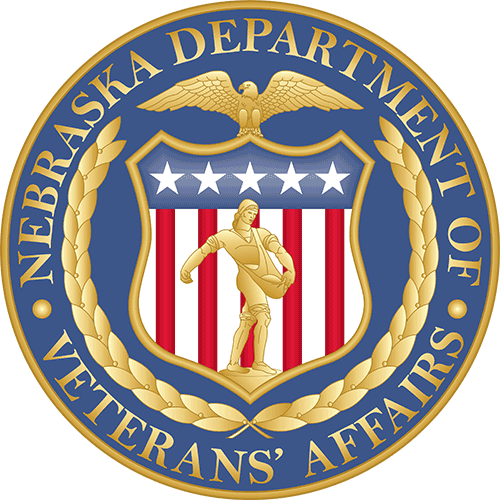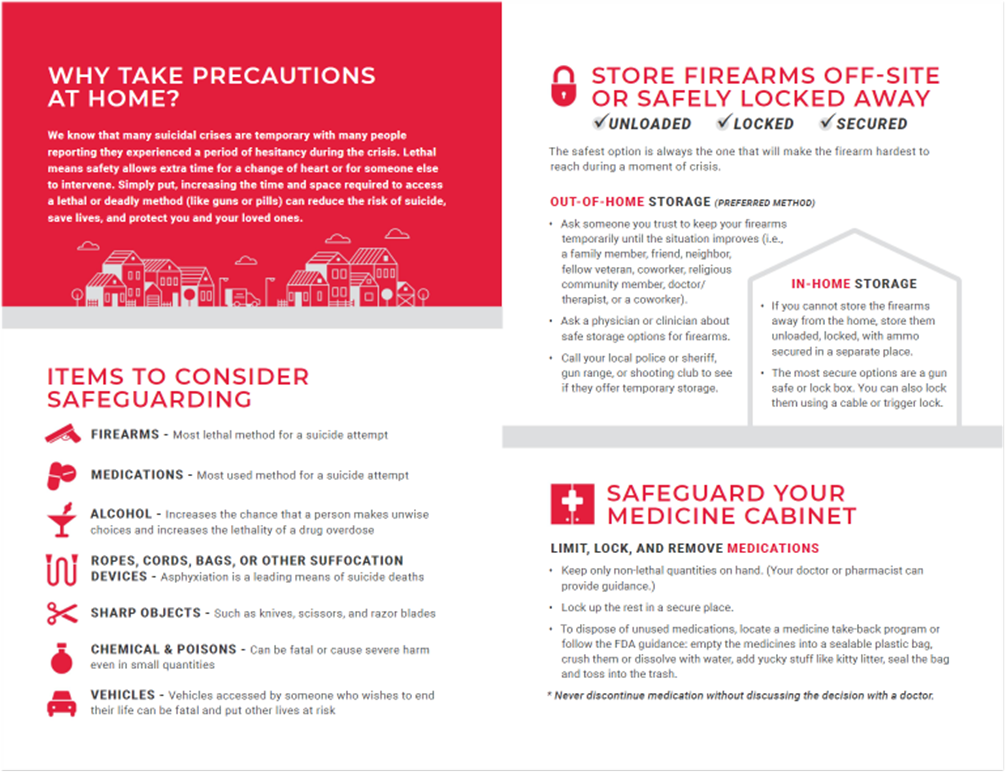
Emergency Intervention
Concerned?
Start the Conversation
As part of ingrained military culture, veterans often do not ask for help. Bringing up suicide in conversation and asking about suicidal thinking can help a veteran feel more comfortable talking about their thoughts and struggles.
Many veterans have “invisible wounds” and may not outwardly look like something is wrong. Veterans who have experiences trauma, combat, military sexual trauma, or traumatic brain injuries may not talk about their experiences or symptoms. Asking veterans about their thoughts and needs can go a long way. “How are your thoughts today?” is a good question to replace “How are you?” to elicit more information on how the veteran is doing.
Asking: “Are you thinking about killing yourself or suicide?” when identifying warning signs or risk factors can start the conversation regarding suicidal concerns. Initiating the conversation and talking about suicide can help end the stigma.
 There are red flags in what they're saying. What should I do?
There are red flags in what they're saying. What should I do?
Dial 988 to access a 24/7 crisis line.
RED FLAGS
Hopelessness: “Nothing I do makes a difference. It’s beyond my control. I’m stuck.”
Direct Statements: “I’m having thoughts of suicide.” “I need help right now.”
Feeling Trapped: “I can’t see any way out of this mess. Life will never get better.”
Feeling Like a Burden: “They would be better off without me.” “I’d be better off dead.”
Lack of Belonging: “No one cares. I don’t fit in.”
Guilt: “It’s all my fault. If I would have done something differently. . . "
Feeling Alone: “I’m on my own. No one cares about me.”
Saying Goodbye or Giving Away Possessions: “I just want to say thank you for everything you’ve done for me.”
What else can I do to help keep them safe?
Reduce Lethal Means Access
Lethal means safety in suicide prevention involves making a method less available and less likely to cause death in a suicide attempt. The goal is to make suicide methods - or means – more difficult to access when someone is at risk for suicide. Research tells us that putting time and distance between an at-risk individual and a means of suicide is an effective way to prevent suicide death.
Click to download this handout.
Where can I look to find more support?
Resources for Mental Health Services
Connecting Veterans to their resources and benefits is crucial. Through research, it has been found that Veterans disconnected from services and benefits have the highest rate of suicide. Not all Veterans, Service Members, and family members know what is available to them or how to access benefits and resources.
Our goal is to enhance the ability to identify those who serve and have served in the military. Special training is not required to identify who is or is not a Veteran. Some veterans do not know if they qualify as a Veteran, or for Veteran’s benefits and can do so by contacting their County Veterans Service Officer (CVSO). Find yours on our CVSO directory.
If a veteran is not connected to care, encourage them in getting connected to a healthcare system. This could be for primary care, mental wellness, integrated care, or other health care needs. We want to meet the veteran where they are at and that could mean choosing a healthcare system other than the VA, such a local non-profits or public hospitals.
Getting a veteran connected to Veterans’ Health Administration (VHA) health care starts with filling out a 1010EZ form, with a care manager, social worker, nurse, or other trained professional. Complete a VA Form 1010EZ online or by calling 1-877-222-VETS(8387).
U.S. Dept of Veterans Affairs
You can find FAQs about VA benefits and services, step-by-step instructions for using VA.gov tools, and other helpful articles.
VET Center
Offers confidential help for Veterans, Service Members, and their families at no cost in a non-medical setting. Our services include counseling for needs such as depression, PTSD, and military sexual trauma.
At Ease USA
Providing access to confidential trauma treatment and therapeutic support for active military, veterans, and their loved ones, regardless of their ability to pay. At Ease USA is a privately funded, locally run non-profit.
NDVA: Veterans Service Officers
Our Veterans Service Officers help veterans and their family members apply for federal, state, and local benefits. They have extensive knowledge of the application and claims process and can provide in-depth advice on claims before the VA.
AFSP Nebraska
Nebraska’s Suicide Prevention chapter links events, programs, and support meetings into one searchable resource. They focus on bringing together communities of diverse backgrounds who are dedicated to suicide prevention.
T.A.P.S.
A national nonprofit organization providing compassionate care and comprehensive resources for all those grieving the death of a military or veteran loved one.
SSVF: Family Outreach
A program focused on providing services and case management for obtaining stable and permanent housing solutions for Veterans and their families.
Make the Connection
Learn more about substance use disorder, treatment options, self-help tools, and resources to help you recover.


